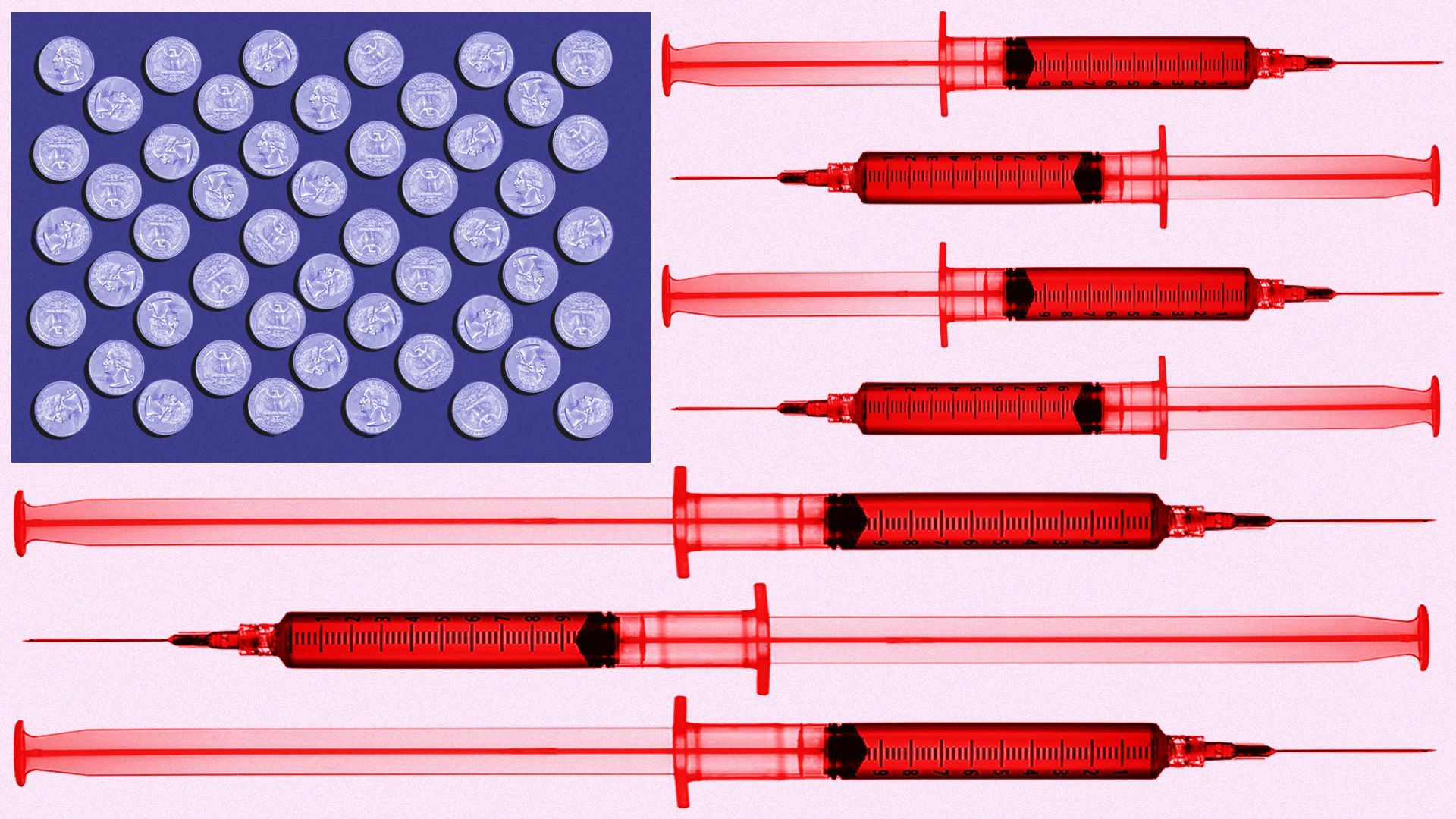Vaccinating rural America won't be easy
Add Axios as your preferred source to
see more of our stories on Google.

Illustration: Sarah Grillo/Axios
The logistical challenges of distributing and administrating a coronavirus vaccine will meet deep skepticism of it in many parts of rural America, the Washington Post reports.
Why it matters: Rural areas are currently being ravaged by the virus, and their residents tend to be older and in worse health — making them more vulnerable to the virus and thus a vaccination priority.
The big picture: Rural communities across the country also tend to have struggling health care systems, further complicating vaccination efforts.
- "Responsibility for their inoculation....will fall to a public health system maimed by budget cuts and riven by racial and other inequities. The day-to-day delivery of shots, without reinforcements, will play out at understaffed clinics, overwhelmed pharmacies and beleaguered long-term care facilities," the WaPo writes.
- Some rural areas may struggle to handle shots that require ultracold storage, and asking residents to visit a drive-up vaccination site may also be unrealistic for those without a car.
And while some populations, especially Black ones, don't trust the medical community, others — like some of President Trump's supporters — believe misinformation about the virus that may discourage them from getting vaccinated.
- “How are you going to get people to take a vaccine to fight a virus they don’t believe in?” Jim Carnes, policy director for Alabama Arise, an advocacy group for low-income residents, asked the Post.
